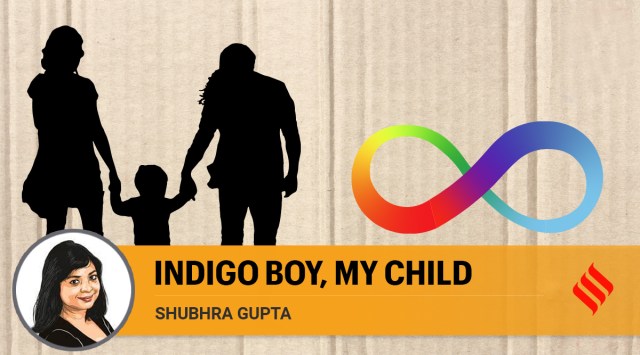
The impassioned outpourings of anger and dismay after a young boy with disabilities and his parents were not allowed to board a flight, were not just about the incident itself. Of course, in and of itself, a flight official behaving with such utter callousness with such a vulnerable part of the population, needs to be called out. But what that shameful incident at the Ranchi airport has proved all over again, if proof was indeed needed, was that this is no country for the disabled.
As parents of a youngster with autism, my husband and I have been at the receiving end of this kind of troubling behaviour not just at airports, but in every kind of public space that we have taken our son to. In the beginning, we would flinch. Every stare or comment used to be so hurtful that it would take all our energy to be brave enough for the next outing. This happened everywhere — in parks, on the road, in restaurants, movie halls and malls, because that was one of the things we were determined to do, once we had got over the initial sledgehammer blow of the diagnosis — our son would go everywhere we would, because that was his right.
The schools that we tried to get him to attend were another story altogether. We’ve had teachers and principals of some of the best schools in the capital turn us away, saying there was no place for “children like him”, because there were no teachers who were trained to handle such “difficulties”. A government official told us that “yeh bimaari toh west mein hoti hai (this illness is prevalent only in the Western countries) aap log itna shor kyon machaa rahein hain (why are you making so much fuss)”, when we had gone as part of a delegation of parents with special needs’ children, with yet another petition.
I will never forget the trauma we faced when we had to get a “disability certificate” for our son. For someone who has severe sensory difficulties, noise, light, crowds, anything out of their routine can be a trigger, and here we were, being sent round in circles, from one window to another, one “department” to another, dragging our tired, unhappy little boy by the arm. Finally, because we were both “media persons”, we managed to make a few calls, and find our way to a young doctor whose inexperience was galling: “Oh, he can’t do this? And he cannot do this also?” This, from a doctor at the best public hospital in the country. In the middle of all this, my son had his first seizure, and in that place, surrounded by some of the best medical brains in the country, I felt more bereft than I ever had before.
I joke, and yes, now I am able to, after so many years of being the mum of a special needs person, that behaviour is also a spectrum, just like my son’s diagnosis. Not every person comes off terrible; there are many who helpfully tell us about this “desi ilaaj (traditional cure)” or that, this shrine or that, this magic cure or that. We are lucky in our supportive family, and our friends like family who envelop us in warmth and care. But, as a family unit, interactions with the “normal” world are limited: Regular children go off on trajectories that we can only dream of, friends, sleepovers, school trips. Our children are left behind, in their special grooves. And we as parents also learn to live “special” lives, socialising separately, and yes, I’m aware of the irony in that phrase.
This Ranchi incident reminded me of a flight we had taken as a family, almost the last time we did such a thing. My husband had printed flyers about the autistic spectrum disorder, and spoken to as many co-passengers as he could, in case our youngster made “too much noise”. We somehow managed to get to the other side, but “ngl”, not gonna lie, as the millennials put it, it wasn’t easy.
Sure, with non-stop advocacy and awareness, things have changed for the better. But how long will it take for people to realise that we are all in this together? Silos are self-defeating. And it’s not just about that boy on the wheelchair and his parents: Don’t we all need wind beneath our wings?
Write to the author at shubhra.gupta@expressindia.com